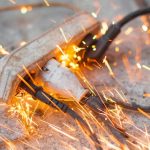The latest report from the Nigerian Electricity Regulatory Commission reveals a concerning situation in the country’s power sector.
According to the report, as of September 30, 2023, there were 12,825,005 registered electricity customers in Nigeria, but only 5,707,838 (44.51%) had meters installed.
This leaves a staggering 7,117,167 power consumers across the nation without meters.
During the nine-month period from January to September 2023, electricity distribution companies installed a total of 504,729 meters.
The breakdown of meter installations showed 175,281 meters in the first quarter, 181,059 meters in the second quarter, and a decrease to 148,389 meters in the third quarter.
It’s important to note that meter installations are ongoing in the current fourth quarter.
A deeper analysis of the third quarter report indicates that Ikeja, Abuja, and Ibadan Discos led in meter installations during this period, accounting for 27.35%, 20.78%, and 17.53% of the total installations, respectively.
Despite the efforts, the 148,389 meters installed in the third quarter represented a decrease of 18.04% compared to the 181,059 meters installed in the second quarter.
However, the report mentioned a positive outcome, with a 0.35 percentage point increase in the net end-user metering rate in the Nigeria Electricity Supply Industry between the second and third quarters.
The report specified that 147,736 meters were installed under the Meter Asset Provider framework, while 207 meters were installed under the National Mass Metering Programme framework.
The Vendor Financed framework recorded 446 meter installations, while no meter installations were reported under the Disco Financed framework.
Operators in the sector have consistently attributed the low deployment of meters and other challenges to the liquidity crisis in the industry.
During a recent power sector ministerial retreat in Abuja, the Minister of Power, Adebayo Adelabu, acknowledged financing as a major challenge in the business of electricity supply in Nigeria.
He emphasized the need for collaborative solutions and initiatives to attract domestic institutional investors and reputable partners to address the present liquidity challenges in the sector.
“The heart of NESI’s proposed reforms hinges upon securing long-term financing across the entire value chain.
“While past discussions highlighted concerns about the financial capacities of private sector players from the 2013 privatisation, our focus must centre on collaborative solutions to alleviate present liquidity challenges.
“Initiating this quest for robust investment involves attracting domestic institutional investors and reputable partners from well-governed sectors within the electricity value chain.
“At this retreat, we’ve invited established infrastructure financiers and fintech innovators to infuse fresh thinking into our industry, aiming to develop innovative policies enabling capital investment programmes and fiscal incentives that elevate the risk profile of sector opportunities to financeable levels,” he stated.











